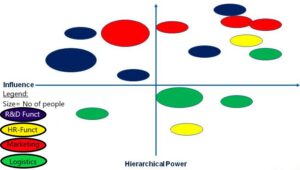How I got myself and people around me out of a blame attitude
There were times in my life when an attitude of “blaming others” had served me well in not feeling guilty and avoiding to accept responsibility for the situation I was in. On the surface such a mentality always felt very sweet and nice but actually at some point I realised that it was a poison for my mind as it had a strong paralytic effect and kept me blind to the obvious of what needed to be done.

I was not alone
When the insight dawned on me I also realised that I was not alone. Quite a number of organisations suffer from these victim mentalities, some more than others. Of course, you find a spectrum of attitudes in organisations from very active and engaged people to those who really are in this victim mode. However, some organisations have allowed the “blaming others” mentality to overgrow the rest of the organisation. And of course it’s the leaders who have allowed a certain culture to flourish. Whether they have not paid enough attention to what’s really going on in the organisation or they have actively contributed to the blame culture is, at the end of the day, irrelevant! The risk in any case is really similar to what I had realised about my own behaviour: that it has a great potential to paralyse an organisation which subsequently makes it less competitive or worse, disappear completely.
After I realised that I was showing this attitude, not all the time but in certain situations, I had learned how I could shift to taking more responsibility for what I was doing. Through this shift I became much more effective, happier and was much more at ease.
In an organisation it is the leader’s responsibility to set the culture! How you as a leader speak will set the tone for how others think and speak. What you are allowing to happen, i.e. in behaviour of people, has the potential to become the norm for members of your organisation (be it good or bad).
So what did I do about it?
Here are a few tips from my learning journey shifting to a more productive attitude of taking responsibility:
- First and foremost I started leading more consciously by example in the way I spoke and acted of taking responsibility in my role as a leader.
- I began to support and challenge others so they had to take responsibility instead of blaming others!
- I started having more focused feedback conversations with those who showed a victim mentality about their behaviour and its effects.
- I also learned a specific approach for such conversations through which one can have a good chance to shift people’s mentality from abdicating responsibility (victim mentality) to a person who takes responsibility in their area of influence.
6 steps from blaming others to accepting responsibility
Let me share the six steps of this approach:
- Frame the conversation to a very recent situation, one where you observed blame behaviour.
- Explore how the person has experienced the situation.
- Be transparent about the intention to support them.
- Ask open questions to explore opportunities to act differently.
- Explore with open questions how they could avoid such situation in the future.
- Close your conversations with clear agreements what the person will do differently.
From personal experience I can only tell you that this approach had a phenomenal effect on my own attitude. And it also helped me over and over again in shifting people’s attitude to one of taking responsibility for their actions which lead to a much more productive behaviour.
Free e-module to support the change
At Con-TACT we have developed a self-directed sequence of reflection and learning about this shift of attitude from a victim blaming others to a player who takes responsibility. It forms a core element of one of our virtual leadership development programme.
Today we give you the opportunity to get free access to this core exercise.
You can also get in touch with me direct so we can discuss and explore this shift in attitude.




